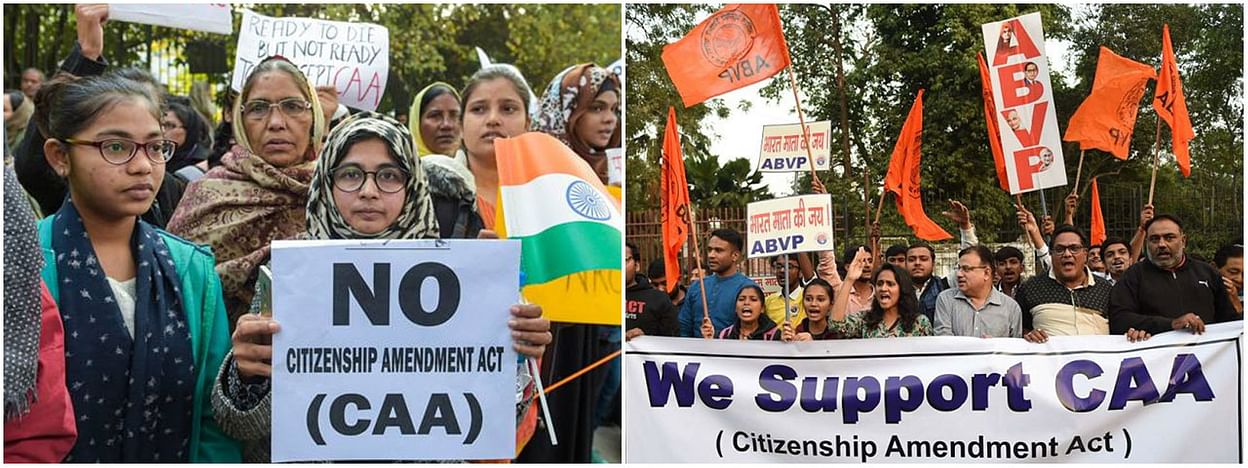Latest News
Law Schools and Alumni on the Citizenship Amendment Act: Role and Responsibility

The Citizenship Amendment Act was enacted earlier this year, and led to an uproar throughout the country, as people rose up in protest against the discriminatory manner in which it categorizes immigrants and muslims. Due to the highly politicized nature of the act, the legal fraternity was divided on the issue, with eminent lawyers like Harish Salve speaking up in favour of it, while renowned Professor Faizan Mustafa was in vehement opposition of it.
But where did the student communities among various law schools and their alumni stand on the issue? After all, the future of the legal fraternity lies in the hands of the students and thus have an instrumental role to play in how lawmaking progresses in the nation.
The first statement of solidarity was jointly issued by the student bodies of NLSIU Bangalore, NALSAR Hyderabad, HNLU Raipur, NLU Odisha, NUSRL Ranchi, NUALS Kochi, MNLU Mumbai and MNLU Nagpur. This statement unequivocally condemned the instances of police brutality at Jamia University and the Aligarh Muslim University against peacefully protesting students. They also stressed on the central role played by dissent in a democracy and how demanding accountability from governments is a constitutional right.
A significant number of alumni from the National Law School of India University (NLSIU, Bangalore), the National University of Juridical Sciences (NUJS, Kolkata) and the National University of Advanced Legal Studies (NUALS, Kochi) spoke up in protest of the CAA, calling it opposed to constitutional morality and condemned the police brutality in institutions around the country.
The NLSIU student community issued a separate statement demanding immediate repeal of the CAA along with swift and immediate action on instances of police brutality. Most NLUs issued statements of solidarity opposing the Citizenship Amendment Act and deemed it in contravention of the constitution.
Therefore, the student community as well as a significant portion of the alumni in the major legal institutions of the country stand united against the controversial citizenship law.
The pertinent question is, how important are these statements? Can they be translated into any actionable change, or are they mere statements of no real consequence? For starters, the fact that the current generation of aware law students are concerned and aware of how lawmaking shapes itself in the country’s context, is greatly appreciable and when they enter the field professionally would put into practise these very ideals.
Moreover, while legal scholars and professors debate the intricacies of the law, forever marred by the inevitable politicization of the issue, the students actually join the protests, offer support to those affected and ensure change from the ground up.
Therefore, the fact that the future of the legal fraternity, is in the hands of this socio- politically aware generation, who see draconian laws as having no place in a functioning democracy, lends itself to a renewed optimism of legal activism in the coming years.
As has been the case throughout history, it is indeed lawyers who often bring about tangible social change, as along with the activism, they inhabit a field with a high degree of specialization and has a central role to play in statesmanship within a democracy.



































































































